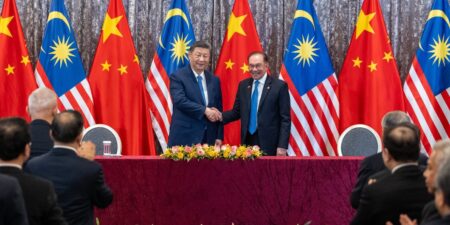
Sri Lanka’s IMF Debt Negotiations Stall Despite Efforts To Stabilize Economy

Insights & News


Cambodia Hosts Chinese President Xi Jinping Amid Global Trade Tensions
The BGA Cambodia, led by Managing Director Bora Chhay wrote an update to clients on …

Malaysia and China Forge Stronger Ties During President Xi Jinping’s State Visit
The BGA Malaysia Team, led by Senior Director Sadiq Noor Azlan, wrote a client update …

Vietnam Hosts Chinese President Amid Global Trade Turmoil
The BGA Vietnam Team, led by Managing Director Nguyen Viet Ha, wrote a client update …
At BowerGroupAsia, we are committed to
delivering result-oriented solutions for our clients
We have proven track record of helping the world’s top companies seize opportunities and manage challenges across the dynamic Indo-Pacific region.




















